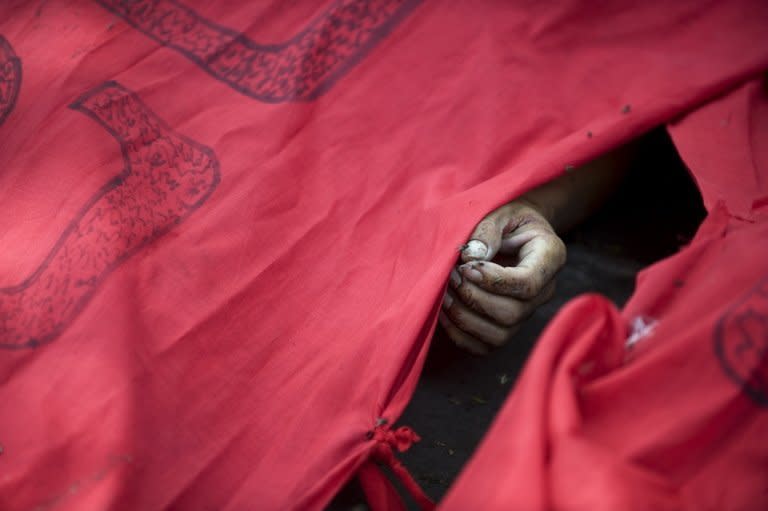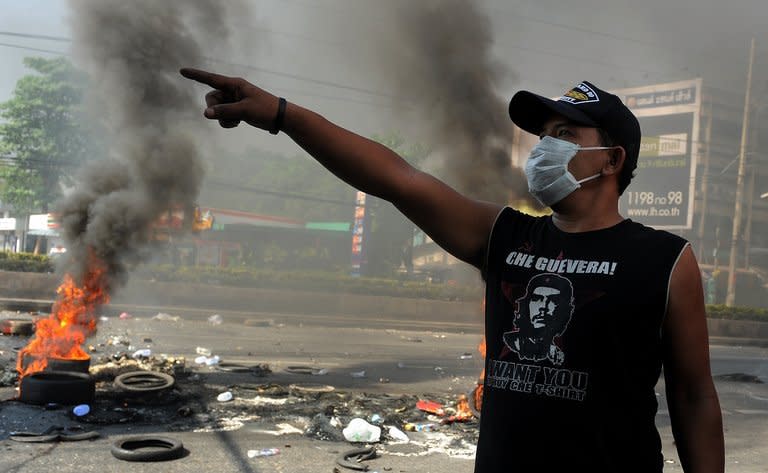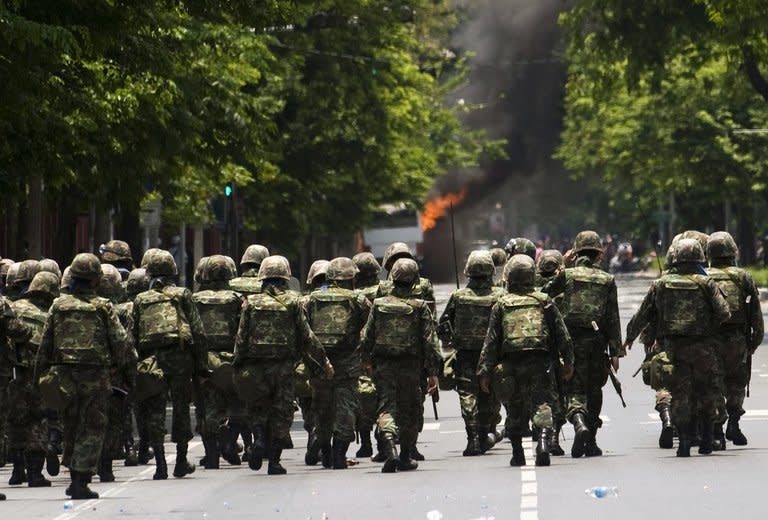Ex-Thai PM to face murder charge
Former Thai premier Abhisit Vejjajiva is to be charged with murder over the death of a civilian during 2010 "Red Shirt" rallies, officials said Thursday, the first government figure to face court over the bloodshed. Abhisit, who was prime minister during the mass anti-government rallies and oversaw a military crackdown on the protests, will be questioned next week and charged over the fatal shooting of a taxi driver by soldiers during the unrest. The Department of Special Investigation (DSI), police and Thai prosecutors jointly decided to charge the former leader and his deputy Suthep Thaugsuban under article 288, the section of the Thai criminal code that deals with murder, said DSI chief Tarit Pengdith. "Their actions -- repeatedly sending the armed forces against civilians -- show an intention to endanger life," he said. He said the group based their decision on further witness testimony as well as a court's decision in September that taxi driver Phan Kamkong was shot by troops -- the first completed inquest into the around 90 deaths during the country's worst political violence in decades. Abhisit and Suthep will be summoned by letter to hear the charges and to be questioned on December 12, Tarit said, adding that authorities would not seek court permission to detain the men, who are both now opposition lawmakers. They will be given an opportunity to defend themselves before considering whether to refer the case to the prosecutor, who would then be responsible for deciding if the case should go to court. Two months of rallies by the Red Shirts -- mostly supporters of ousted Thai premier Thaksin Shinawatra -- brought parts of central Bangkok to a standstill, with around 100,000 people joining the demonstrations at their height. Street clashes between Red Shirt demonstrators and security forces left nearly 1,900 wounded and culminated in a bloody military crackdown in May 2010. Two foreign journalists were among those killed. Until now no government or military officials had faced charges over the deaths. Abhisit has insisted the protest leaders should accept responsibility and said his government had no choice but to take tough action. "It was the job of the government of that day to also restore order," he told AFP last month. Red Shirts have raised accusations of double standards over terrorism prosecutions against 24 of their leaders, including five current lawmakers, who could in theory face the death penalty in a case that is set to begin on December 13. They pleaded not guilty in August 2010. Rights campaigners have said both the protesters and the authorities of the time should be held accountable. AFP was not immediately able to contact Abhisit on Thursday. Suthep said he would attend the hearing next week, adding that he would consult his lawyers before making any further comment. Thailand has been riven by bitter political divisions since Thaksin was toppled by royalist generals in a 2006 coup that unleashed years of street protests by the Reds and the rival royalist Yellow Shirts. Elections in 2011 brought Thaksin's Red Shirt-backed Puea Thai party to power with his sister Yingluck as prime minister, sweeping Abhisit into opposition. Last month saw the first major street protests against Yingluck's government, with police firing tear gas as clashes erupted among a group of around 20,000 demonstrators -- who included supporters of the Yellow Shirts. Red Shirt leader Thida Thavornseth said the group was not out for "revenge" over the 2010 unrest. "The charge follows the facts, which clearly show that there were almost 100 people killed and someone must be responsible," she told AFP. Tarit insisted the investigation into the unrest had not been subject to political interference and was decided on the basis of "facts and laws". He said soldiers acting under orders would not face prosecution. The inquest into Phan's death found that the 43-year-old was shot when he ran out of a central Bangkok apartment block to see what was happening after hearing soldiers open fire at a minibus that had strayed into an area under army control.






